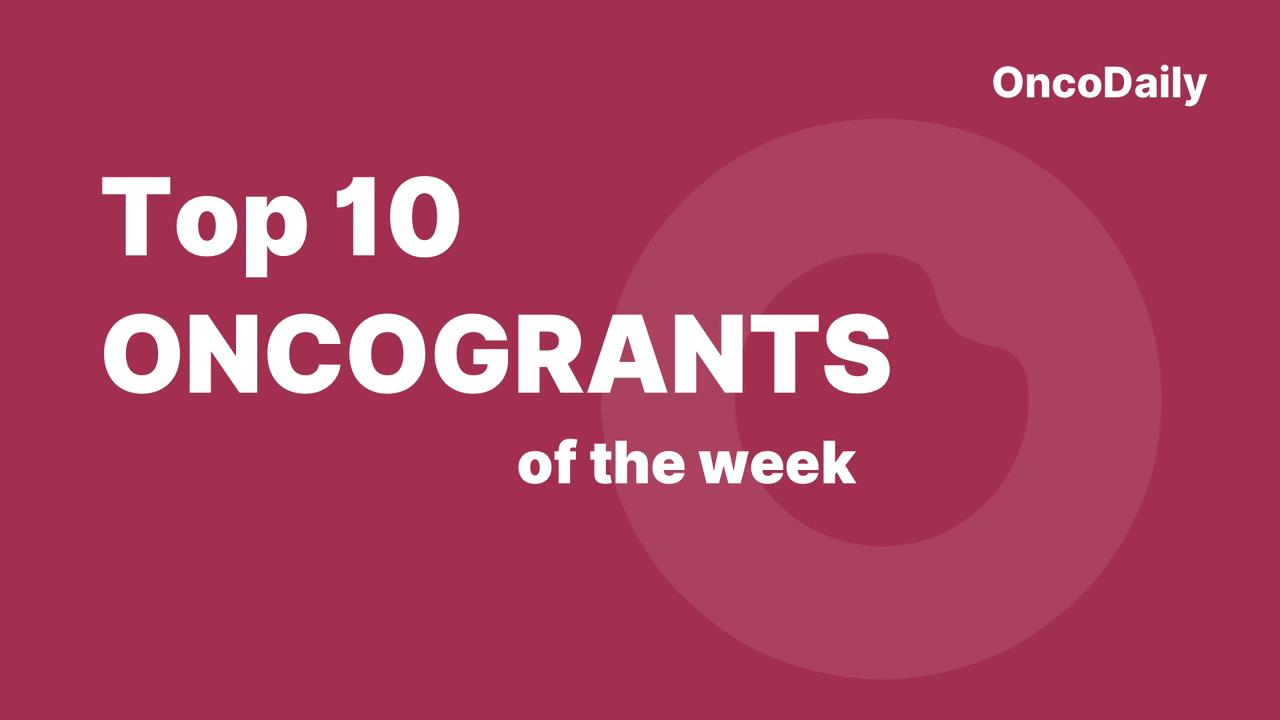This week, OncoDaily highlights the top 10 oncogrants, offering vital funding for cutting-edge cancer research. These grants support researchers at various stages of their careers, with a focus on advancing innovative treatments, prevention strategies, and diagnostic approaches across multiple cancer types.
1. AGA Research Scholar Award
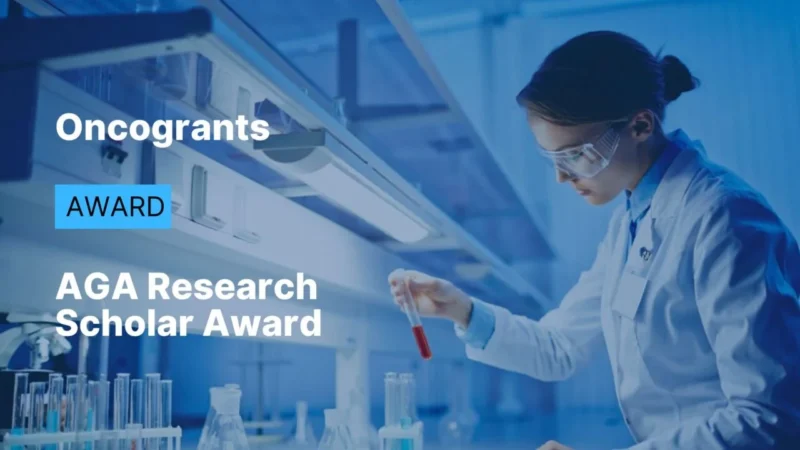
Early-career faculty award supporting independent digestive disease research with protected time (≥50% effort). Provides USD 100,000 per year for three years (USD 300,000 total).
Eligibility Criteria:
- MD/PhD (or equivalent) and full-time faculty (or equivalent) in the U.S., Canada, or Mexico by July 2026.
- Early-career: ≤7 years since GI fellowship completion (MD) or since PhD conferral (PhD); documented leaves may be excluded (request in advance).
- Any research type relevant to digestive diseases (basic, translational, clinical).
- AGA membership at submission and maintained throughout the award.
- Sponsor and mentor required (one person may serve as both).
- Not eligible if holding or having held comparable career/independent awards (e.g., NIH K01/K08/K23/K99/R00/R01/R21/R29, VA CDA); K12/KL2 allowed per timing rules.
Funding Details:
- Total: USD 300,000 over 3 years (USD 100,000/year).
- Allowable: PI and key personnel salary/benefits; biostatistics; supplies/animals/equipment (≤ USD 5,000/year); travel (≤ USD 1,500/year).
- Not allowed: mentor salary/support; indirect costs.
- Annual scientific and financial reports; years 2–3 contingent on satisfactory progress.
Deadline:
- Application due: December 3, 2025.
- Funding start: July 1, 2026.
- Status: Accepting applications now.
Where to Go for Further Information:
- Policies, resources, FAQs, and past awardees available on the AGA Research Foundation site.
- Questions: awards@gastro.org.
2. Lung Cancer Discovery Award
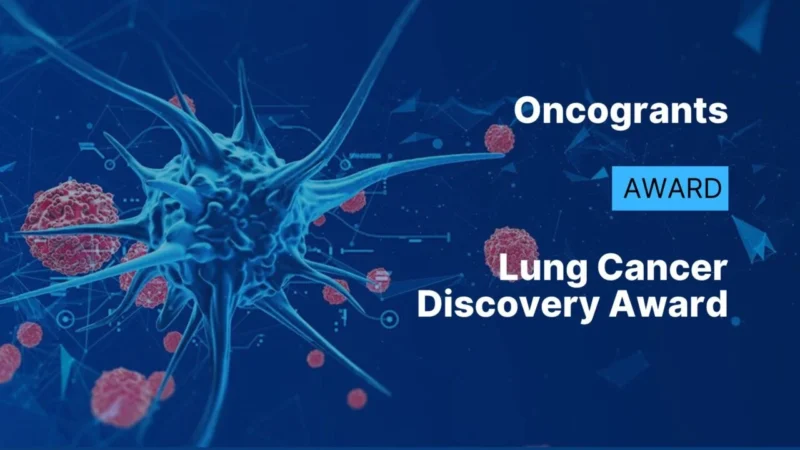
American Lung Association funds innovative projects to transform lung cancer screening, prevention, diagnosis, or treatment—especially genetics-driven disease and never-smoker lung cancer. Up to two years of support.
Eligibility Criteria:
- Doctoral degree; independent, full-time faculty/professional appointment with completed fellowship.
- U.S. nonprofit host institution only; applicant must be authorized to work in the U.S.
- One LOI and one application per ALA cycle; may receive this grant only once.
Funding Details:
- USD 100,000 per year for up to 2 years (max USD 200,000).
- Indirect costs not allowed.
- ≤75% of total budget may support the PI’s salary/benefits; ≤30% for permanent equipment.
- Discretionary travel/publication costs up to USD 2,500 per year.
Deadline:
- LOI opens: August 7, 2025; LOI due: September 18, 2025 (11:59 p.m. ET).
- By-invitation full application due: December 1, 2025 (11:59 p.m. ET).
- Notifications: June 2026; start date: July 1, 2026.
Where to Go for Further Information:
- Submit via ProposalCentral.
- Questions: pcsupport@altum.com.
3. ChadTough Defeat DIPG Fellowship Grants (Pre-Doctoral & Post-Doctoral)
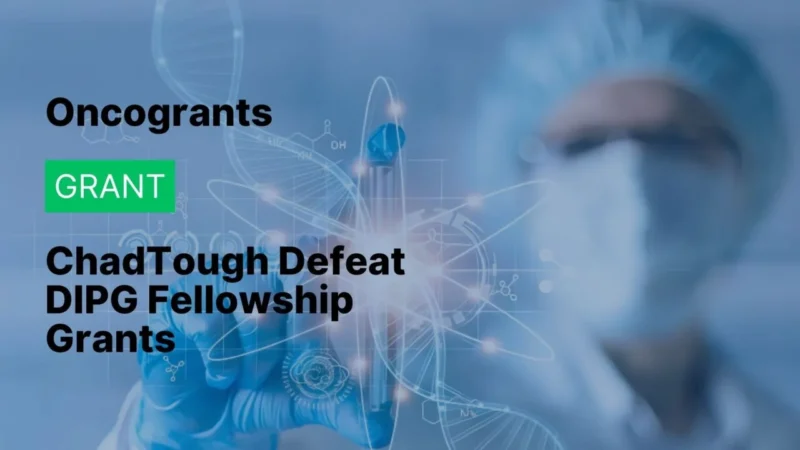
Supports promising fellows pursuing DIPG/DMG research worldwide under strong mentorship; pre-doctoral up to USD 200,000 over 3 years, post-doctoral up to USD 300,000 over 3 years.
Eligibility Criteria:
- Pre-doctoral: enrolled in a research doctoral program at an accredited institution.
- Post-doctoral: MD and/or PhD by the deadline; ≤6 years since last degree; employed at an academic/nonprofit research institution or lab.
- All fellows: ≤1 prior fellowship; ≥75% effort to research; identified mentor; no overlap in funding; not limited to U.S. citizens or U.S. institutions.
Funding Details:
- Pre-doctoral: up to USD 200,000 (≤USD 67,000/year) for stipend, tuition, and fees.
- Post-doctoral: up to USD 300,000 (≤USD 100,000/year) for salary and fringe benefits only.
- Paid to the institution; no indirect costs; research time only; data sharing and publications expected.
Deadline:
- Application due: September 8, 2025 (11:59 p.m. EDT).
- Notifications: November 2025; Start date: January 1, 2026.
Where to Go for Further Information:
- Apply via ProposalCentral (search “ChadTough Defeat DIPG”).
- Questions: grants@chadtough.org.
4. Cholangiocarcinoma Foundation Innovation Award
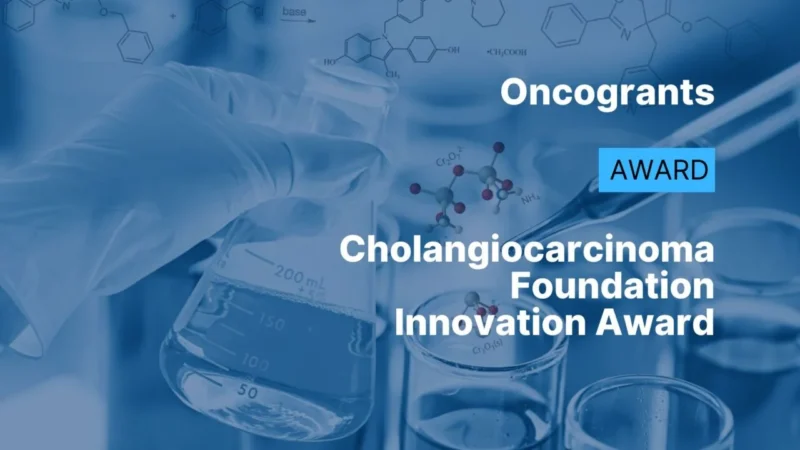
Three-year, USD 750,000 award to accelerate innovative clinical trials and novel therapies in cholangiocarcinoma, prioritizing designs and endpoints that can raise evidence levels and change clinical practice.
Eligibility Criteria:
- Degrees: MD, PhD, PharmD, DVM (or equivalent).
- Roles: Full/Associate Professor, Clinical Researcher, Research Scientist, Epidemiologist, Biostatistician, or Postdoctoral Fellow.
- Institutions: Academic/medical/research institutions worldwide.
- Collaboration: New or established multi-center teams (≥2 sites) with capability to complete the work.
- Prior CCF awardees may apply; prior CCA experience not required.
Funding Details:
- Total: USD 750,000 over 3 years (USD 250,000/year).
- Direct project costs only; no indirect/overhead.
- Supports PI salary/benefits and research expenses.
- Areas of interest: basic, translational (human samples/data), and clinical science; topics include neoadjuvant/adjuvant trial designs, novel endpoints (e.g., downstaging), and robust evaluation of loco-regional therapies.
Deadline:
- LOI due: August 22, 2025.
- Invitations to apply: September 17, 2025.
- Full application due: October 29, 2025.
- Scientific review: November 20, 2025.
- Award notification: November 24, 2025.
- Earliest start: January 2026.
Where to Go for Further Information:
See the Call for Letters of Intent on the Cholangiocarcinoma Foundation website for LOI components (one-page summary & aims, references, NIH biosketch/CV) and full application instructions.
5. Curing Kids Cancer Research Grants — Individual & Collaborative
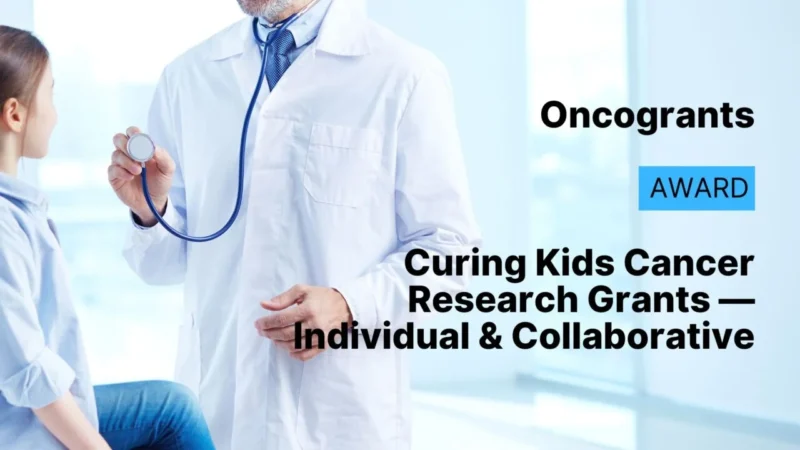
One-year grants to accelerate promising childhood cancer therapies into the clinic, with priority for immunotherapy/targeted therapy, high-grade brain tumors or other hard-to-treat pediatric cancers, and epigenetic/gene therapy; novel tech (omics, AI, gene editing, nanotech) welcomed.
Eligibility Criteria:
- Children’s Oncology Group (COG) member institutions in North America.
- PIs at any academic rank (MD and/or PhD).
- One application per institution total (either Individual or Collaborative) with division-chief endorsement(s).
Funding Details:
- Individual Grant: USD 150,000 (1 year).
- Collaborative Grant: up to USD 300,000 (1 year; ≥2 institutions’ heme/onc divisions).
- Up to 10% indirects; NIH salary cap applies; correlative studies tied to funded clinical trials considered; second-year renewals require full review.
Deadline:
- Submission due: September 15, 2025 (11:59 p.m.).
- Awards announced: late 2025; grant term: January 1, 2026 – December 31, 2026.
Where to Go for Further Information:
- Apply via ProposalCentral (search “Curing Kids Cancer”).
- RFP/admin questions: madalynn@curingkidscancer.org; anjali@curingkidscancer.org.
6. Vicky Amidon Innovation Grant in Lung Cancer Research
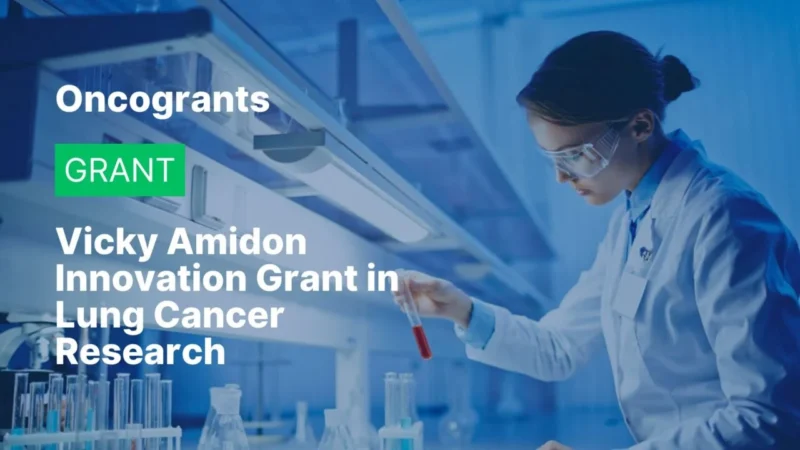
One-year seed grant for novel, high-impact lung cancer projects in prevention, diagnosis, treatment, or survivorship; innovative, collaborative, and disparities-focused proposals are encouraged.
Eligibility Criteria:
- Open to researchers at all levels in academic/community centers, CROs, emerging pharma, or other research institutions.
- Applicant must be based in North or South Carolina.
- Project must directly apply to lung cancer; collaborations and work addressing minority populations are favored.
Funding Details:
- Up to USD 25,000 for 1 year.
- Include current CV and a support letter from a program/department director or supervisor with the application.
Deadline:
- Applications due: August 29, 2025.
- Decision: October 17, 2025.
- Project start: January 1, 2026.
Where to Go for Further Information:
- Apply via ProposalCentral (GMID 270).
- Questions: JDanai@LungCancerInitiative.org.
7. LCRF–Boehringer Ingelheim Team Science Award: HER2-Driven Lung Cancer
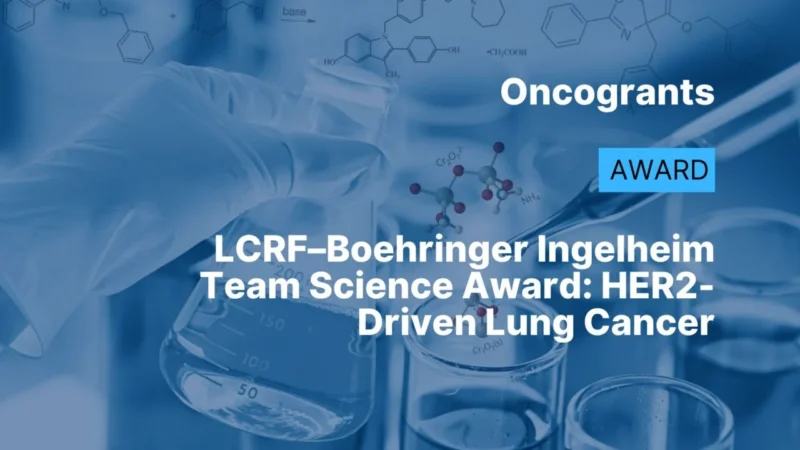
Three-year, team-science grants for closely integrated clinical and translational projects in HER2-mutant lung cancer; proposals must involve patients, include a patient advocate, and preferably be associated with or lead to a clinical trial.
Eligibility Criteria:
-
Faculty-level team leaders with complementary expertise; designate one PI for administrative leadership. Teams may span multiple (including international) institutions; applicants can hold any residency/citizenship status. Must include a patient/patient advocate with a role in study design. Applicants may not be current LCRF grantees and may submit only one LCRF application per cycle. Senior investigators (>5 years past first faculty appointment) must show independent programs.
Funding Details:
-
Up to USD 1,500,000 total over 3 years (USD 500,000/year). Up to 10% indirect costs allowed; travel/publication costs permitted; equipment must be limited and directly applicable. Salary support has no fixed cap but requests >20% of total must be explicitly justified. Funds are released in three installments tied to reporting.
Deadline:
- September 30, 2025.
- Full proposals due January 6, 2026; finalist presentations March 2026; awards announced May 2026.
Where to Go for Further Information:
- Apply via ProposalCentral, search “2025 LCRF | Boehringer Ingelheim Team Science Award on Innovative Approaches Toward the Treatment of HER2-Driven Lung Cancer.”
- Program questions: grants@lcrf.org.
8. Alex’s Lemonade Stand Foundation: Young Investigator Grant
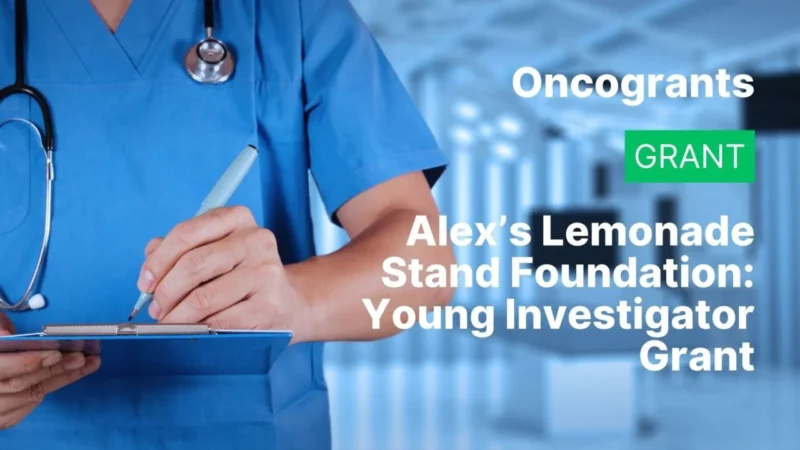
Three-year pediatric oncology award for postdoctoral/clinical fellows or instructors, supporting promising, mentor-guided projects with a clear career development plan. Up to USD 60,000/year (max USD 180,000 direct costs) with strong expectations for resource/data sharing.
Eligibility Criteria:
- Institution based in the U.S. or Canada; funds to nonprofit organizations (citizenship not required).
- Degree/rank: MD, PhD, or MD/PhD; not above Instructor (Assistant Professors ineligible).
- Time limits: MD/MD-PhD within 7 years of last doctoral degree; PhD within 4 years (or in accredited clinical fellowship and within first 3 years at Instructor).
- Protected time: ≥75% non-clinical research effort during the award.
- Mentor with pediatric cancer track record (or co-mentor) and detailed training plan.
- Must not hold NIH R/P/F/K awards at application/award; institutional training (e.g., T32/K12/KL2) allowed.
Funding Details:
- Up to USD 180,000 total over 3 years (USD 60,000/year; direct costs only).
- No indirect costs; NIH salary cap applies.
- Allowable: salary/fringe, supplies, small equipment, travel; one no-cost extension possible; not renewable.
Deadline:
- Proposals due: December 11, 2025 (by 8:00 p.m. ET).
- Notification: May 2026.
- Projected term: July 2026 – June 2029.
Where to Go for Further Information:
- Apply via ProposalCentral (search “Alex’s Lemonade Stand Foundation”).
- Contact: Conner Holm — C.Holm@AlexsLemonade.org.
9. ALSF & RUNX1 Research Program — RARE Grant
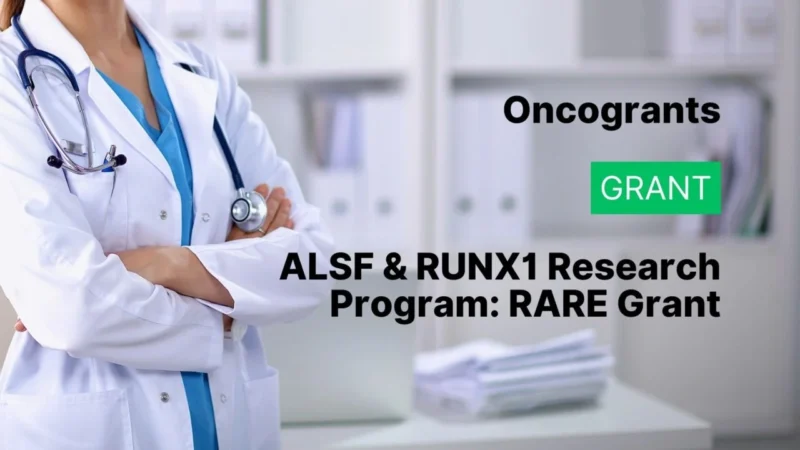
Two-year translational funding (USD 250,000) to accelerate druggable pathways and deliver cancer interception/prevention strategies for RUNX1-FPD—aimed at stopping clonal hematopoiesis from progressing to MDS/AML and moving findings toward the clinic.
Eligibility Criteria:
- MD/PhD (or equivalent) at a non-profit institution (U.S. or international; citizenship not required).
- Demonstrated expertise in hematopoiesis and/or immunology; proposals must clearly target prevention/interception in RUNX1-FPD.
- Other active grants allowed with documented plans to avoid scientific/budget overlap; collaboration encouraged.
Funding Details:
- USD 250,000 total over 2 years (≤ USD 125,000/year); direct costs only; no indirects; NIH salary cap applies.
- Allowable: personnel, fringe, supplies, small equipment, reasonable travel; one no-cost extension possible.
- Resource/Data Sharing plan required.
Deadline:
- Full proposal due December 11, 2025 (8:00 p.m. ET).
- Notification: February 2026.
- Projected term: April 2026 – April 2028.
Where to Go for Further Information:
- Apply via ProposalCentral (ALSF — RARE Grant).
- Program contacts: Dr. Katrin Ericson — KEricson@Runx1-FPD.org; ALSF grants — M.Poore@AlexsLemonade.org.
10. CureSearch Catapult Award in Pediatric Cancer
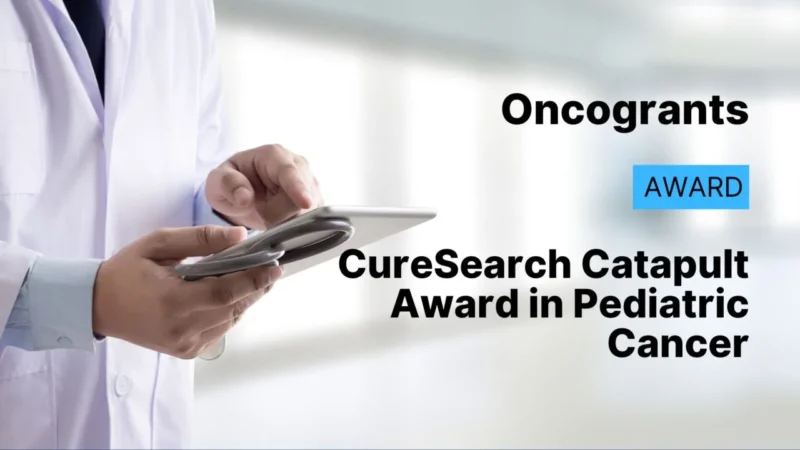
Accelerates “clinic-ready” pediatric oncology therapies into Phase 1–2 trials, emphasizing high-need indications (e.g., high-risk/relapsed/metastatic, AYA) with clear milestones; up to USD 2,500,000 over three years.
Eligibility Criteria:
- PI at a nonprofit academic/research institution (worldwide) or a small, privately held startup/biotech/pharma; doctoral degree required. Collaborative academia–industry projects encouraged.
- Projects must be IND-ready, under an active IND (or equivalent), or adult-approved agents not yet studied in pediatric oncology.
- If requesting ≥ USD 500,000, PI effort ≥10%. No active CureSearch grant in the same cycle.
Funding Details:
- Up to USD 2,500,000 total (≤3 years), including up to 10% indirect costs. NIH salary cap applies; equipment ≤20% of direct costs; travel ≤ USD 5,000/year; no tuition/visa/professional dues. Payments biannual for academics; for-profits may use milestone/equity schedules.
- Expected milestones: first patient enrolled year 1; accrual complete year 2; manuscript submitted by end of year 3.
Deadline:
- LOI due: October 7, 2025 (11:59 p.m.)
- LOI decisions/invites: November 10, 2025
- Full application due: January 18, 2026
- Earliest award notice: March 2026 (rolling, funds permitting).
Where to Go for Further Information:
- Submit LOI via ProposalCentral.
- Program questions: researchgrants@curesearch.org.
If you want to learn more about Oncogrants, click here.


